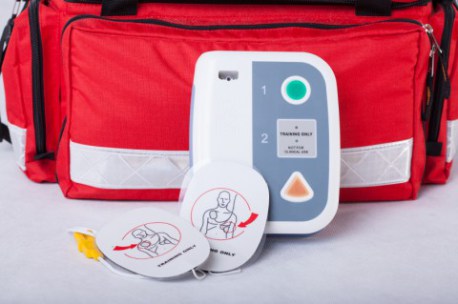
Last year, six out of 11 high school football player deaths were blamed on heart conditions, heat stroke or drinking too much water too fast. This year, athletic trainers are asking schools to implement emergency preparedness procedures to avoid health-related issues triggered by heat.
“It shouldn’t be that a kid has to die for the school to be prepared,” Jonathan Drezner, a University of Washington sports medicine physician and co-author of an editorial in the Journal of Athletic Training, told Reuters.
Among the recommendations by the National Athletic Trainers’ Association: schools should have automated external defibrillators on hand. But only 19 states have laws mandating them. In fact, just 14 states have adopted all of the organization’s best practices.
Another recommendation: Make sure athletes acclimate to the heat and intensity. Yet another: schools should have a full-time athletic trainer; currently, 37 percent of schools do, according to the editorial in the Journal of Athletic Training. Many schools also schedule practices for evening or early morning hours to avoid the heat.
In Kansas City, Mo., for example, the football team recently started practice indoors in an air-conditioned gym, according to KMBC, heading outdoors after the sun set.
Symptoms of mild dehydration include swollen hands or feet, cramps or lightheadedness, according to Philly.com. Symptoms of more serious dehydration include confusion, lack of coordination, skin that is hot and dry, nausea, goose bumps and headaches. Athletes with those symptoms should be cooled immediately, preferably via whole body ice water immersion. And call 911, Dr. Thomas Trojian advises via Philly.com.
Some health experts think athletes should have electrocardiograms (EKGs) during their athlete physicals, the Miami Herald points out, to catch potential heart problems. Some hospitals have even started offering them to kids for free. But others, including the American Heart Association, say both the costs and possibility of inaccurate screenings mean the tests should not be mandatory.
ORIGINAL ARTICLE:
http://bringmethenews.com/2015/07/25/athletic-trainers-urge-caution-as-teenage-athletes-begin-hot-summer-practices/